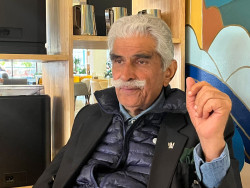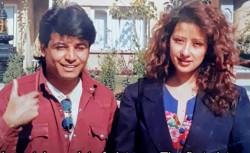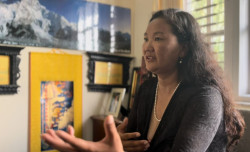Minute Talk
A veteran Indian security expert has said that the government of India will have no choice but to do business with whoever gets elected as the new prime minister in Nepal.
Retired major general of the Indian Army, Ashok Mehta, said that New Delhi will have no say whatsoever in supporting or choosing a new prime minister in Nepal.
His comments came as leaders in the Nepali Congress-led alliance intensified negotiations with smaller parties to form a majority government, following the November 20 general election. No political party secured a clear majority in the election that threw a hung parliament.
In an interview recorded for NepalMinute.com’s video segment, MINUTETALK, Mehta said: “It's not a question of what India would like and not like. It's a choice or the sovereign right of the people of Nepal to elect their government - and the party or the alliance will select the prime minister.”
He continued: “So it may not be Sher Bahadur Deuba, it could be Gagan Thapa, it could be anybody else. And therefore I think the days when India wanted who to be prime minister are gone. India has to deal with what obtains on the ground and the wishes of the people of Nepal.”
It is not a choice that Indian Prime Minister Modi will be able to make, he added.
According to him, the government of India should work with whoever comes to power – Deuba or KP Oli. “The government of India has worked with the Oli government, and they got on famously after an initial period of glitch due to [Nepal's new] map and the border dispute [at Kalapani-Lipulekh area].”
Dwelling on the ups and downs in Nepal-India relations, he said that the controversial Indian army recruitment policy called Agniveer, which Nepal has rejected, remains the biggest issue in the bilateral relations.
He said: “The main concern now is on Agniveer, which has a strong strategic bearing on India-Nepal relations. The Gorkha connect is important because the government of Nepal does not accept the four-year contract and does not send or allow its soldiers and youths to be recruited - then it's the end of the Gorkha regiments of the Indian army.”






